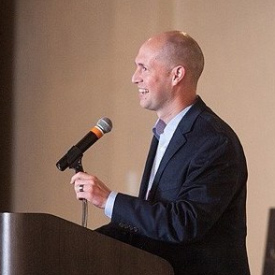Blogging through Hell – Part I
Recently, I began teaching The Inferno, the first and best known part of Dante Alighieri’s Divine Comedy, for the first time in several years. Sadly, I had forgotten much of its beauty and power. To ensure that my current encounter sticks a bit longer, I have decided to blog my way through hell, drawing attention to the lingering questions, connections, and struggles of the journey. Perhaps we will learn something.
“Therefore, for your own good, I think it well you follow me…” (Canto I.105-106)
The Dark Wood & the Descent
“Midway in our life’s journey, I went astray
from the straight road and woke to find myself
alone in a dark wood. How shall I say
what wood that was! I never saw so drear,
so rank, so arduous a wilderness!
Its very memory gives a shape to fear.” (Canto I.1-5)
“Dark…drear…rank…arduous” – quite a foreboding beginning to Dante’s masterpiece! Yet, just a few lines later, Dante glimpses the shoulders of Mount Joy – Paradise. Seeing its pathway emblazoned, Dante races toward the mountain only to encounter three beasts blocking his path – the Leopard, the Lion, and the She-Wolf, each representative of different kinds of sin. The Leopard poses as a likely picture of Fraud – beautiful on the outside, but ravenous and deadly. The Lion is a majestic creature, but one of Violence – a model of selfish ambition and literal violence. Then there is the She-Wolf of Incontinence – lack of self-control, given over to passions.
The three beasts block Dante’s path to Mount Joy. Sin keeps us from where our souls long to go. Barred from the way, Dante is even pursued back down by the She-Wolf of Incontinence, which some take as a confession on Dante’s part. His retreat leads him to the feet of Virgil, the poet author of The Aeneid, sent specifically to guide Dante through hell, purgatory, and in the direction of paradise. Virgil too is a representative presence in The Divine Comedy, a kind of incarnation of Human Reason. Significantly, Virgil (Human Reason) cannot lead Dante into paradise. He will need a far greater guide for that.
Three Blessed Ladies
In Canto II, Virgil leads them down the descent to hell and Dante, understandably, begins to get quite nervous. What is going to happen to him down there? Who has given him permission for such a journey? Dante says:
“How should I dare? By whose permission?
I am not Aeneas. I am not Paul.
Who could believe me worthy of the vision?
How, then, may I presume to this high quest
and not fear my own brashness? You are wise
and will grasp what my poor words can but suggest.” (Canto II.31-36)
Virgil answers Dante’s concerns by reminding him that he had been sent for this specific journey by Beatrice, Lucia, and Mary, the mother of Christ. These three ladies are also representative. Beatrice serves as a picture of Divine Love (she was also the subject of Dante’s real life obsession). Lucia represents Divine Light, and Mary is a picture of Divine Mercy.
Such attributions are not mere speculation, but are made rather clear in the poem’s text. Beatrice specifically tells Virgil that she has been sent by Love (II.72). Lucia is identified as “that soul of light and foe of all cruelty” (II.100-101), and her very name means “light.” Additionally, Lucia is the patron saint of eyesight. But, the entire journey is instigated by Mary, the “Lady in Heaven” (II.94), who sends Lucia to Beatrice and encourages her to help Dante out of his lost and wandering state. These are the three things – Divine Love, Divine Light, and Divine Mercy – are all that Dante will need as he descends through hell and purgatory, in order to ascend to Mount Joy.
Beatrice, Lucia, and Mary, three “blessed Ladies” (II.121), are counterparts to the three beasts Dante encounters in Canto I. Divine Love, Divine Light, and Divine Mercy are the antitheses of Fraud, Violence, and Incontinence. Virgil urges Dante on with the realization that, in these three Ladies, he has all that he needs, to survive the journey through hell, and to ascend to Paradise. Virgil says:
“And now what ails you? Why do you lag? Why
this heartsick hesitation and pale fright
when three such blessed Ladies lean from Heaven
in their concern for you and my own pledge
of the great good that waits you has been given?” (Canto II.119-123)

Brian Phillips
Dr. Brian Phillips serves as a pastor in Concord, NC, where he lives with his wife and their four children.










